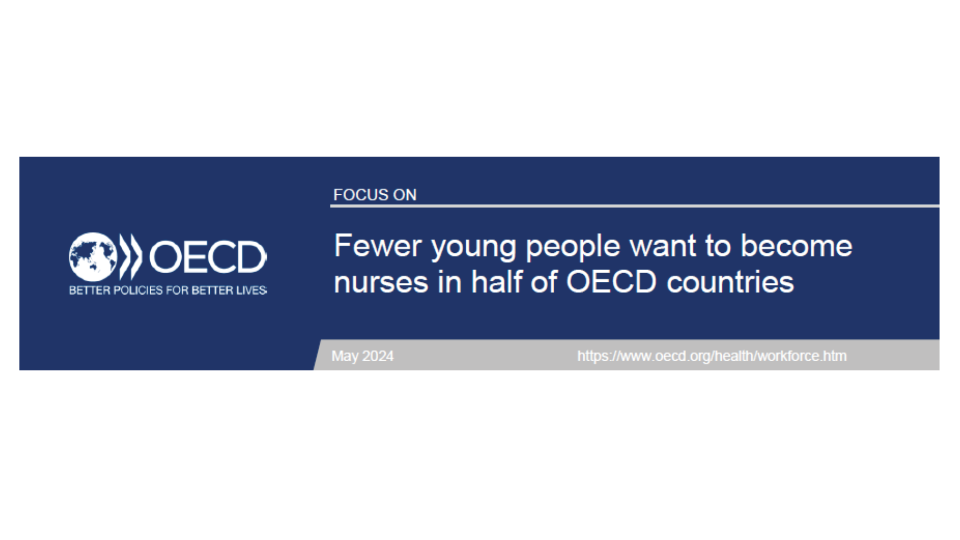ICN responds to new OECD data showing reduced interest in nursing as a career: “We cannot ignore the alarm bells ringing about the lack of action to secure the future of the nursing profession”

The International Council of Nurses (ICN) is calling for decisive action and investment in the global nursing workforce after an Organization for Economic Co-operation and Development (OECD) report revealed an 8% drop in the number of young students expecting to train as nurses.
The report shows that while the COVID-19 pandemic presented nurses as heroes, it also exposed the challenging working conditions and low pay they endure, which have contributed to low levels of job satisfaction and increased intentions to leave the profession.
While ICN believes some nations are bucking the trend revealed by the OECD report, the overall picture globally is concerning. ICN President Dr Pamela Cipriano said: “Nurses are the solution for the sustainable development of our planet’s health, economic and security needs. That’s why it is concerning when OECD data reveals reduced interest in nursing as a career in many countries. The current situation is the result of historic and persistent underfunding of care and a lack of investment in the nursing profession, only exacerbated by the pandemic.
‘Rather than investing in the existing nursing workforce through safe and decent working conditions fair pay, protecting well-being, and opportunities for career progression, many governments instead are creating new cadres of health workers, some with far less education, and turning to international recruitment as cheap quick fixes. Let’s be crystal clear, these are wrong choices taking us in the wrong direction. They will not deliver the nursing professionals required to ensure accessible sustainable quality health care for all.”
The report also highlighted the continuing low levels of recruitment of men entering the profession.
Commenting on the report’s findings about the small proportion of men joining the profession, ICN Chief Executive Officer Howard Catton said: “Attracting more men into nursing is not a silver bullet to address the deep-rooted gender inequalities and stereotypes embedded within the nursing profession, but it has to be part of ensuring a future workforce to meet the ever-growing health needs of all people.
‘As a nurse, I say to boys and men everywhere, if you want a job where you need to have courage, to be able to deal with complexity and unpredictability, to make critical decisions, show leadership and have the opportunity to make a real difference in people’s lives, have the courage of your convictions, and choose nursing.”
Key messages from the OECD report
- There has been an 8% decrease in the interest among 15-year-old students in pursuing nursing careers (from 2.3% to 2.1%) between 2018 to 2022.
- COVID-19 pandemic led to mixed perceptions of nurses, highlighting them as heroes but also exposing challenging working conditions and low pay, which have contributed to high job dissatisfaction and intentions to leave the profession.
- More than 90% of the students interested in nursing are girls suggesting a need for better career guidance and efforts to attract male students.
- Many OECD countries are expanding nurse education programmes and providing financial incentives to attract more nursing students, but not all.
- If local recruitment remains insufficient, OECD countries might increasingly rely on international recruitment, raising ethical concerns about exacerbating nurse shortages in the countries of origin.